CONTRIBUTING AUTHORS
Jane F. Adolphe, J.C.L./J.C.D., LL.B./B.C.L., Professor of Law, Ave Maria School of Law, Naples, Fl., Adjunct Professor of Law, University of Notre Dame, School of Law, Sydney, Australia, Founder and Executive Director, International Catholic Jurists Forum. She has worked as an external and internal legal expert for the Papal Secretariat of State, Section for Relations with States.
Jennifer Bilek is an artist, activist, and investigative journalist. Her journalism has been featured in Tablet Magazine, First Things, and The Post Millennial.
J. Budziszewski, Professor of Government and Philosophy, University of Texas at Austin. Dr. Budziszewski is recognized especially for his works on natural law and his series of line-by-line commentaries on Thomas Aquinas. He also studies and writes about conscience; moral self-deception; moral character; human happiness; family and sexuality; religion in public life; toleration and liberty; and the unraveling (and possible restoration) of our common culture.
Marco Casanova, M.Div. Associate Director, Desert Stream Ministries. Marco oversees Living Waters in the United States. Living Waters is a pastoral healing program for men and women seeking focused accompaniment towards chastity. Marco writes and speaks about his experience of same-sex attraction, and how chastity is the roadmap for anyone seeking life beyond LGBTQ+-identification. He works closely with Andrew Comiskey as his successor of Desert Stream. He and his wife Ania live in Kansas City, MO. The work of Desert Stream/Living Waters can be found at https://www.desertstream.org/.
Peter J. Colosi, Ph.D is Associate Professor of Philosophy at Salve Regina University in Newport, RI. He has published many articles and book chapters in the areas of Catholic medical ethics and social teaching, contemporary philosophical personalism and Franciscan studies in both academic and online venues. He is the main organizer and co-founder of the Theology of the Body International Symposia. There have been five Symposia thus far, in Austria, Ireland, England, Portugal and Holland, and the Symposia talks can be viewed at https://tobinternationalsymposia.com/. His personal website is https://peterjcolosi.com/.
John F. Crosby was born in Washington, D.C., and grew up in Mobile, Ala. He received his B.A. from Georgetown University in 1966 and his Ph.D. from the University of Salzburg, Austria, in 1970. His teacher in philosophy was Dietrich von Hildebrand. He has taught at the University of Dallas, the University of Salzburg, the Lateran University in Rome, and at the International Academy of Philosophy in Liechtenstein; since 1990 he has been teaching at Franciscan University of Steubenville, where he founded the M.A. program in philosophy. He has published extensively on the thought of St. John Henry Newman, as well as on the thought of St. John Paul II. The philosophy known as Christian personalism stands at the center of his teaching and writing, and the books he has written are The Selfhood of the Human Person (1996), Personalist Papers (2004), and The Personalism of John Henry Newman (2014). He and his wife, Pia, are the parents of six children, the oldest of which is John Henry. He has assisted John Henry in founding the Dietrich von Hildebrand Legacy Project, which is devoted to disseminating the religious and philosophical legacy of von Hildebrand.
David P. Deavel (Ph.D., Fordham) is an Associate Professor in and Chairman of the Theology Department at the University of St. Thomas in Houston, Texas. A former Editor of Logos: A Journal of Catholic Thought and Culture, he co-edited Solzhenitsyn and American Culture: The Russian Soul in the West (Notre Dame, 2020). His academic articles have appeared in Chesterton Review, Chicago Studies, The Journal of Markets & Morality, Nova et Vetera, New Blackfriars, and many books. He is a Senior Contributor at The Imaginative Conservative, member of the Board of Directors of the Fellowship of Catholic Scholars and University Faculty for Life, and a member of the Advisory Board for CUA Press’s Catholic Women Writers series. His public and popular articles have appeared in Catholic World Report, Claremont Review of Books, Commonweal, First Things, and The Wall Street Journal.
Richard Doerflinger, M.A., is former Associate Director of the Secretariat of Pro-Life Activities, U.S. Conference of Catholic Bishops. He is a Faculty Fellow with the de Nicola Center for Ethics and Culture, University of Notre Dame, and Adjunct Fellow in Bioethics and Public Policy with the National Catholic Bioethics Center in Philadelphia. He and his wife live in Washington state.
Mary Eberstadt holds the Panula Chair at the Catholic Information Center in Washington, DC, and is a Senior Research Fellow with the Faith and Reason Institute. She is author of several books including How the West Really Lost God, which examines the relationship between secularization and the sexual revolution; and Adam and Eve after Pill, Revisited, about the revolution’s destructive consequences on society, politics, and Christianity (Foreword by Cardinal George Pell).
Eduardo Echeverria (PhD, Vrije Universiteit, Amsterdam; S.T.L., University of St. Thomas Aquinas, Angelicum) is Professor of Philosophy and Systematic Theology at Sacred Heart Major Seminary in Detroit. He is the author of numerous books, including Roman Catholicism and Neo-Calvinism: Ecumenical and Polemical Engagements (2024), Are We Together? A Roman Catholic Analyzes Evangelical Protestants (2022), Pope Francis: The Legacy of Vatican II, 2nd edition (2019), Revelation, History, and Truth: A Hermeneutics of Dogma (2017). He is a member of the American ecumenical initiative, Evangelicals and Catholics Together.
Jason Evert, M.A., is the founder of Chastity Project and its website, chastity.com. Over the past 25 years, he has spoken on the topics of chastity and gender to more than two million young people on six continents. He is also the author of more than twenty books, including Saint John Paul the Great, Theology of the Body in One Hour, and Male, Female, Other?
Stefano Gennarini, J.D., S.T.B., is the Vice President for Legal Studies at the Center for Family and Human Rights (C-Fam). He represents C-Fam at UN headquarters in New York and researches and writes on international law and policy.
Carrie Gress, Ph.D., is a Fellow at the Ethics and Public Policy Center and a scholar at The Institute for Human Ecology at Catholic University of America. She is the founder and co-editor at the online women’s magazine and marketplace TheologyofHome.com and the author of ten books, including the Theology of Home series, The Anti-Mary Exposed, and The End of Woman.
Amy E. Hamilton, Ph.D., Research Associate, University of Texas at Austin and Fellow, Nesti Center for Faith & Culture-University of St. Thomas, Houston. Dr. Hamilton has been a Fulbright scholar and a Social Science Research Council Sexuality Research Fellow. Her dissertation focused on the life narratives of Christians who had experienced conflicts with their spiritual and sexual identity. She studies and writes on topics related to marriage, faith, gender, and sexuality. Her work can be found at: amyhamilton.org.
Elizabeth R. Kirk is an Assistant Professor at The Catholic University of America Columbus School of Law, where she also serves as Co-Director of its Center for Law and the Human Person. Elizabeth’s scholarship focuses on law and the family, including issues such as parental rights, reproductive technologies, abortion jurisprudence, and child welfare and adoption. She also explores the relationship, both complementary and contrasting, between the Catholic intellectual tradition and law.
Angela Lanfranchi, M.D., F.A.C.S., is a retired breast cancer surgeon who cared for over 20,000 women with breast disease over a 33 year career. A 1975 graduate of Georgetown Medical School, in 1986 she was appointed a Clinical Assistant Professor of Surgery at Rutgers-RWJ Medical School and is presently the President of the Breast Cancer Prevention Institute (www.bcpinstitute.org) which she co-founded in 1999. She has published peer reviewed articles on the impact of hormonal contraception and induced abortion on breast disease and women. She lectures nationally and internationally on those topics.
Anne M. Maloney received her Ph.D. in Philosophy from Marquette University. She is currently an Associate Professor of Philosophy at St. Catherine University in St. Paul, MN. Her areas of specialization include Philosophy of Women, Ethics, Philosophy and Literature, Philosophy of Religion, and Existentialism. She has published articles in Crisis Magazine, Human Life Review, and The Journal of Prolife Feminism. Also, she has contributed chapters to two books dealing with abortion and social ethics: LivingWith Contradictions: Controversies in Feminist Social Ethics, edited by Alison Jaggar, and Catholicism and Abortion: A New Generation of Catholic Response., edited by Stephen J. Heaney. She is also co-author of The Hand That Rocks the Cradle: Mothers, Sons and Leadership. She has appeared on CNN and on National Public Radio, and has spoken many times in the Twin Cities area about ethics, feminism, abortion, contraception, marriage and sexuality. Her husband Stephen is also a philosopher, and together they have three children and two grandchildren.
Piotr Mazurkiewicz: Priest of the Warsaw archdiocese, Professor in the field of political science and Catholic social teaching, head of the Department of Political Theory and Political Thought at the Institute of Political Science and Administration of Cardinal Stefan Wyszyński University in Warsaw. Editor-in-chief of the journal Christianity – World – Politics. Between 2002 and 2008 member of the Council of the European Society for Research in Ethics “Societas Ethica”. From 2008 to 2012 Secretary General of the Commission of Bishops of the European Community COMECE. From 2001 to 2023 member of the Scientific Council of the Institute of Political Studies of the Polish Academy of Sciences.
Jennifer Roback Morse is the founder of The Ruth Institute, an interfaith international coalition to defend the family and build a Civilization of Love. She taught economics at Yale and George Mason Universities for 15 years. She resigned her tenured teaching position in 1996 to care for her children, a badly neglected Romanian adopted son, and a birth daughter. She founded the Ruth Institute in 2008, and has devoted her professional skills to developing a defense of traditional Catholic teaching on marriage, family and human sexuality.
Adrian Reimers is adjunct professor of philosophy at Holy Cross College in South Bend, Indiana. His publications include the Soul of the Person: A contemporary philosophical anthropology, The Truth about the Good: Moral norms in the thought of John Paul II, Hell and the Mercy of God, The Good Is Love: The body and human acts in Humanae Vitae and John Paul II, and forthcoming The Ethos of the Christian Heart: Reading Veritatis Splendor, as well as a number of articles on the thought of Saint John Paul II.
Michele M. Schumacher is a wife and mother of four adult children, a doctor in sacred theology (S.T.D.), and a private docent (habil.) at the University of Fribourg (Switzerland). In addition to numerous articles and book chapters in various languages on feminism, sexual ethics, marriage, and spirituality, she is the author of A Trinitarian Anthropology: Adrienne von Speyr and Hans Urs von Balthasar in Dialogue with St. Thomas Aquinas (Washington D.C.: Catholic University of America Press, 2014); Metaphysics and Gender: The Normative Art of Nature and Its Human Imitations (Steubenville, OH: Emmaus Academic, 2023); and God Acting in Man: Founding Human Freedom in Aquinas’s Natural Desire to See God Doctrine (forthcoming). She is also the editor and contributing author of Women in Christ: Towards a New Feminism (Cambridge, UK / Grand Rapids, MI: Eerdmans, 2004).
Janet E. Smith is retired from Sacred Heart Major Seminary in Detroit, MI where she held the Father Michael J. McGivney Chair of Life Ethics. She is the author of Humanae Vitae: A Generation Later and A Right to Privacy. Self-Gift is a volume of her already published essays on Humanae Vitae and the thought of John Paul II. She edited Why Humanae Vitae is Right: A Reader, Life Issues, Medical Choices (with Christopher Kaczor), Living the Truth in Love: Pastoral Approaches to Same-Sex Attractions (with Rev. Paul Check) and Why Humanae Vitae is Still Right. In her retirement she is helping victims of the priestly sexual abuse crisis, writing on the glories of the Traditional Latin Mass and trying to finish several scholarly projects. Prof Smith served three terms as a consulter to the Pontifical Council on the Family and also served as a member of the Anglican Roman Catholic International Commission III for 8 years.
Carl R. Trueman is professor of Biblical and Religious Studies at Grove City College, PA. Originally a student of Reformation and post-Reformation thought, he has more recently worked in the areas of identity and critical theory. He is the author of numerous books, including The Rise and Triumph of the Modern Self (Wheaton: Crossway, 2020) and To Change All Worlds: Critical Theory from Marx to Marcuse (Nashville: B and H, 2024).
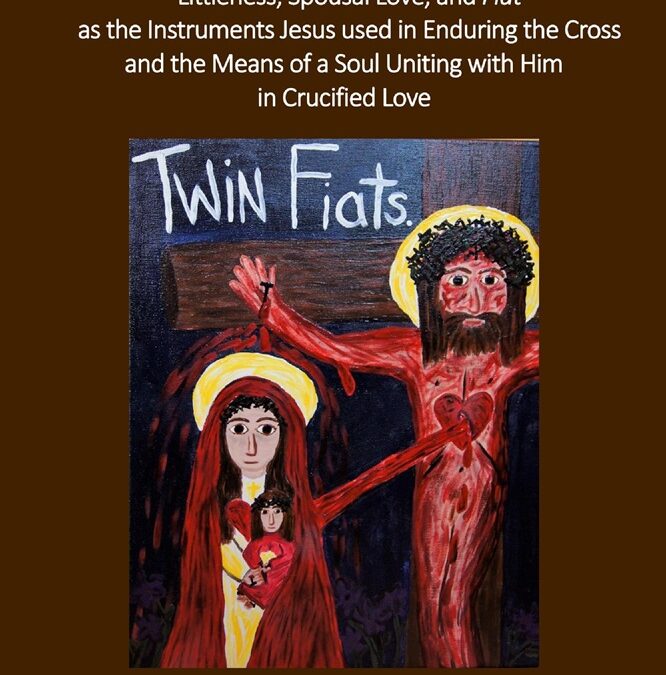
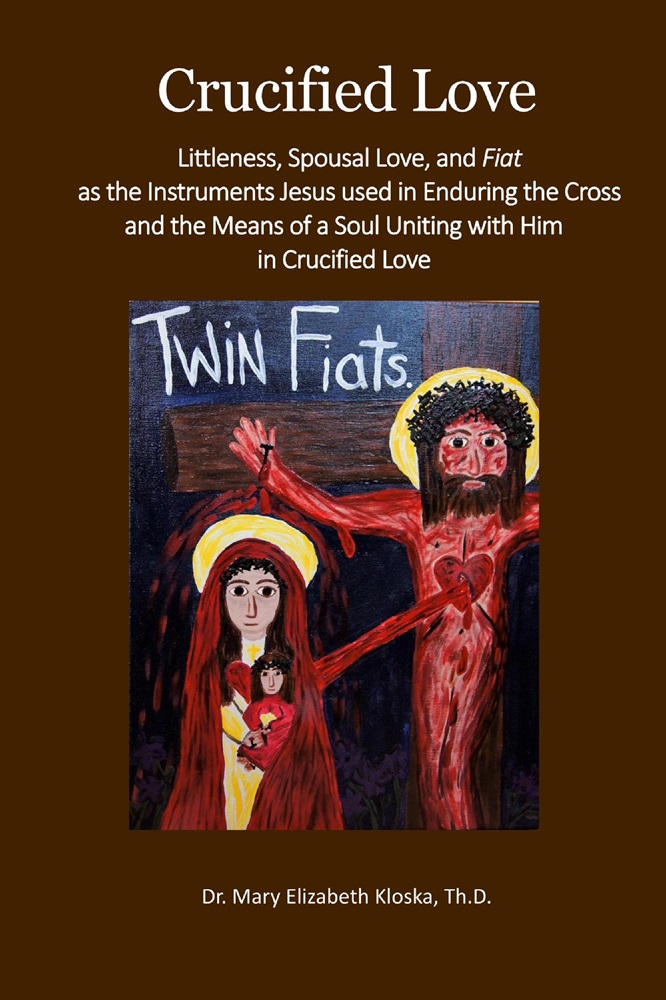
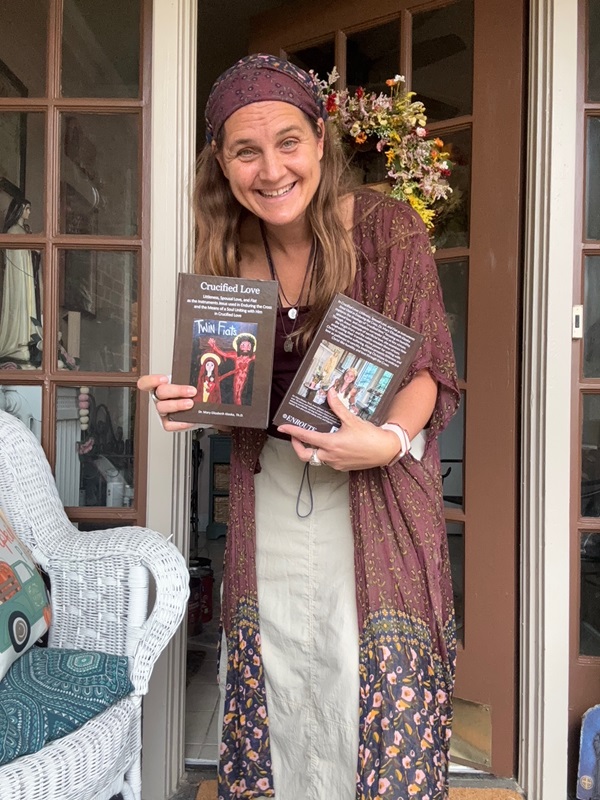



 Dr. Mary Kloska, Th.D., is from Elkhart, Indiana. She was raised in a huge Polish family (12 brothers and sisters) along with a lot of foster babies and other needy people in and out of the house. She presently has 70+ nieces and nephews. She has lived a very unique life. Upon graduating from Notre Dame in 1999 she spent almost 20 years in the missions serving the poor (including orphanages) as well as praying as a consecrated hermit all over the world –Siberia, Nigeria, Tanzania, South Africa, Philippines, Mexico, the Holy Land and all over Europe as well. Although she spent a lot of time away in silence praying, ironically she loves children and is very fun and outgoing when it comes to serving young adults, as well as the little ones. She also spent her time in the missions giving retreats, doing simple catechesis, leading prayer groups, giving spiritual direction, helping in deliverance, changing diapers, feeding babies and cleaning floors. After spending intense time serving in a mission she would withdraw for periods of ‘retreat’ as a hermit (including three years as an official diocesan hermit with vows under a Bishop.) The last few years she has spent as a fulltime nanny to infant triplets, twins and several large families. She speaks many languages (poorly) and enjoys playing guitar, painting icons, baking, gardening, reading, writing and simply filling in where there is the greatest need in the Church. Her WCAT Radio program, “The Heart of Fiat Crucified Love,” may be found
Dr. Mary Kloska, Th.D., is from Elkhart, Indiana. She was raised in a huge Polish family (12 brothers and sisters) along with a lot of foster babies and other needy people in and out of the house. She presently has 70+ nieces and nephews. She has lived a very unique life. Upon graduating from Notre Dame in 1999 she spent almost 20 years in the missions serving the poor (including orphanages) as well as praying as a consecrated hermit all over the world –Siberia, Nigeria, Tanzania, South Africa, Philippines, Mexico, the Holy Land and all over Europe as well. Although she spent a lot of time away in silence praying, ironically she loves children and is very fun and outgoing when it comes to serving young adults, as well as the little ones. She also spent her time in the missions giving retreats, doing simple catechesis, leading prayer groups, giving spiritual direction, helping in deliverance, changing diapers, feeding babies and cleaning floors. After spending intense time serving in a mission she would withdraw for periods of ‘retreat’ as a hermit (including three years as an official diocesan hermit with vows under a Bishop.) The last few years she has spent as a fulltime nanny to infant triplets, twins and several large families. She speaks many languages (poorly) and enjoys playing guitar, painting icons, baking, gardening, reading, writing and simply filling in where there is the greatest need in the Church. Her WCAT Radio program, “The Heart of Fiat Crucified Love,” may be found 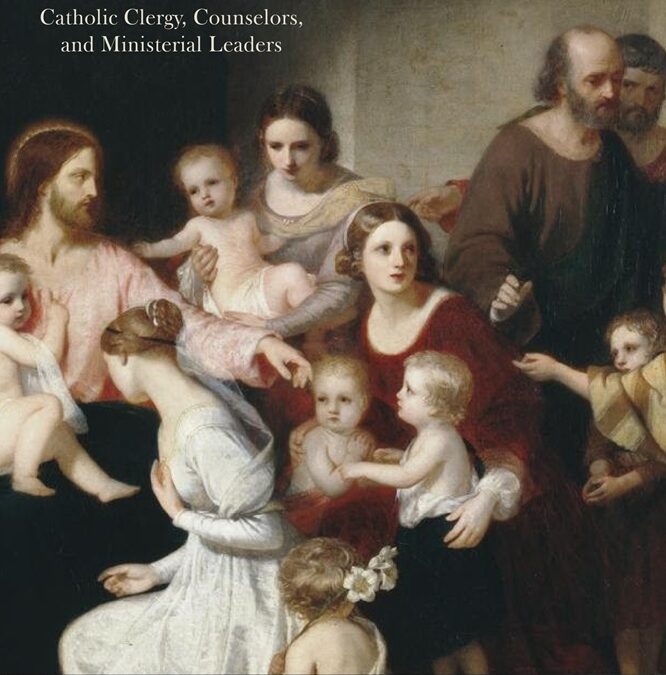
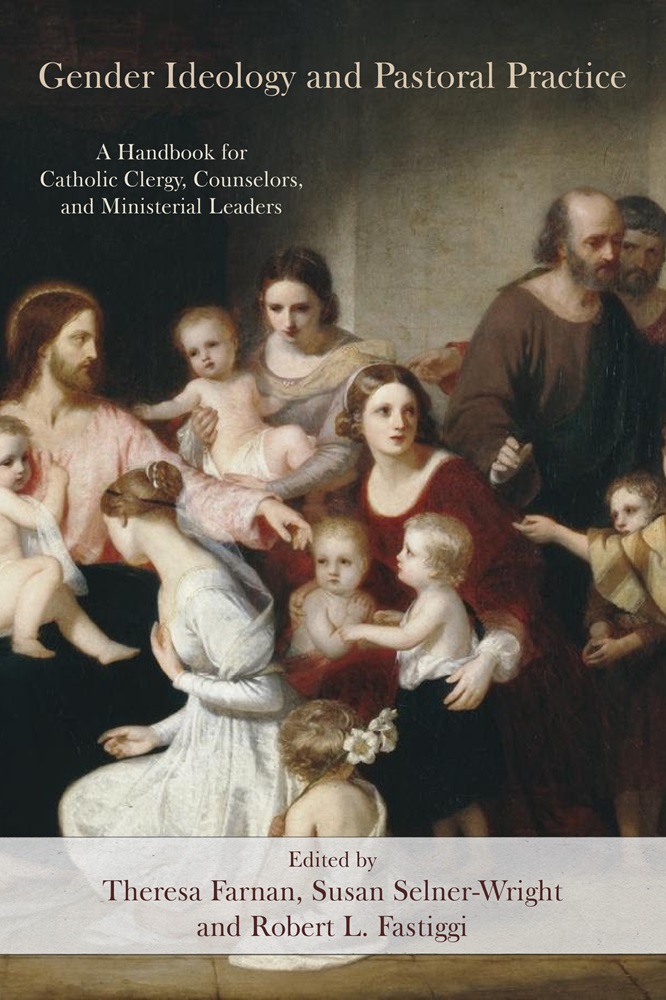
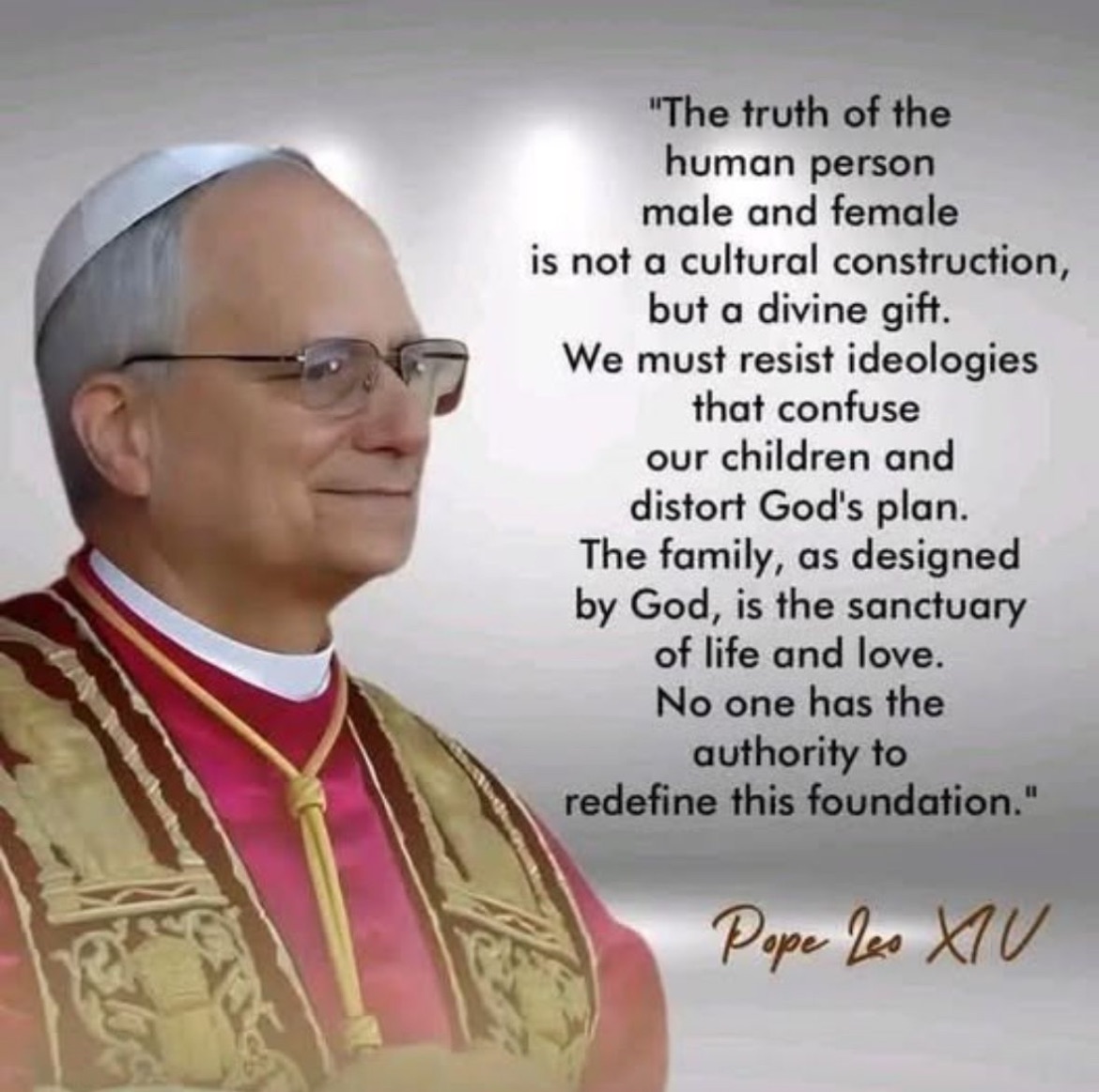
 is a fellow at the Ethics and Public Policy Center focusing on the challenges of gender ideology as part of EPPC’s Person and Identity Project. She is the co-author of two books, Get Out Now: Why You Should Pull Your Child from Public School Before It’s Too Late and Where Did I Come From? Where Am I Going? How Do I Get There? She has taught at St. Paul Seminary in Pittsburgh, Franciscan University of Steubenville, and Mount St. Mary’s Seminary and has worked with the diaconate formation program for the Dioceses of Harrisburg and Pittsburgh. She served as a consultant to the U.S. Conference of Catholic Bishops’ Committee on Laity, Marriage, Family Life, and Youth and is a member of the Catholic Women’s Forum Advisory Council. She serves on the Ethics and Public Policy Committee of the National Catholic Partnership on Disability. She has lectured widely on gender ideology, Catholic education, theology of the body, the personalism of Pope John Paul II, the philosophy of St. Thomas Aquinas, and the vocation and dignity of women. She hosted St. Thomas Aquinas in Today’s World on the Eternal Word Television Network (EWTN). She received her master’s degree and her doctorate in Medieval Studies from the University of Notre Dame.
is a fellow at the Ethics and Public Policy Center focusing on the challenges of gender ideology as part of EPPC’s Person and Identity Project. She is the co-author of two books, Get Out Now: Why You Should Pull Your Child from Public School Before It’s Too Late and Where Did I Come From? Where Am I Going? How Do I Get There? She has taught at St. Paul Seminary in Pittsburgh, Franciscan University of Steubenville, and Mount St. Mary’s Seminary and has worked with the diaconate formation program for the Dioceses of Harrisburg and Pittsburgh. She served as a consultant to the U.S. Conference of Catholic Bishops’ Committee on Laity, Marriage, Family Life, and Youth and is a member of the Catholic Women’s Forum Advisory Council. She serves on the Ethics and Public Policy Committee of the National Catholic Partnership on Disability. She has lectured widely on gender ideology, Catholic education, theology of the body, the personalism of Pope John Paul II, the philosophy of St. Thomas Aquinas, and the vocation and dignity of women. She hosted St. Thomas Aquinas in Today’s World on the Eternal Word Television Network (EWTN). She received her master’s degree and her doctorate in Medieval Studies from the University of Notre Dame. having taught philosophy to undergraduates and Catholic seminarians since 1985, recently retired from St. John Vianney Theological Seminary where she held the Archbishop Chaput Chair in Philosophy. In 2017, Dr. Selner-Wright organized the first national conference for diocesan personnel on the Catholic response to gender ideology and she has worked with the Ethics and Public Policy Center’s Person and Identity Project (PIP) since its inception. Several of her presentations concerning the Catholic vision of the human person and the current debates about “gender identity” are freely available on the PIP website: personandidentity.com.
having taught philosophy to undergraduates and Catholic seminarians since 1985, recently retired from St. John Vianney Theological Seminary where she held the Archbishop Chaput Chair in Philosophy. In 2017, Dr. Selner-Wright organized the first national conference for diocesan personnel on the Catholic response to gender ideology and she has worked with the Ethics and Public Policy Center’s Person and Identity Project (PIP) since its inception. Several of her presentations concerning the Catholic vision of the human person and the current debates about “gender identity” are freely available on the PIP website: personandidentity.com.
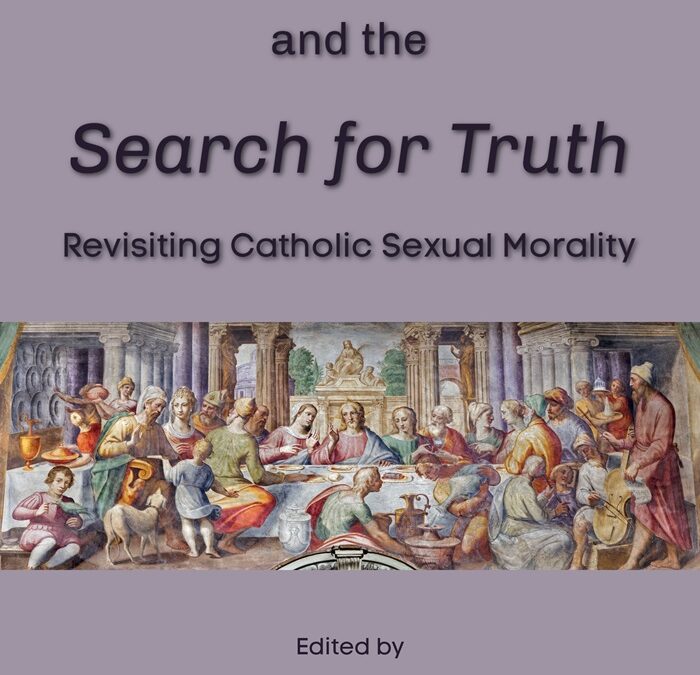
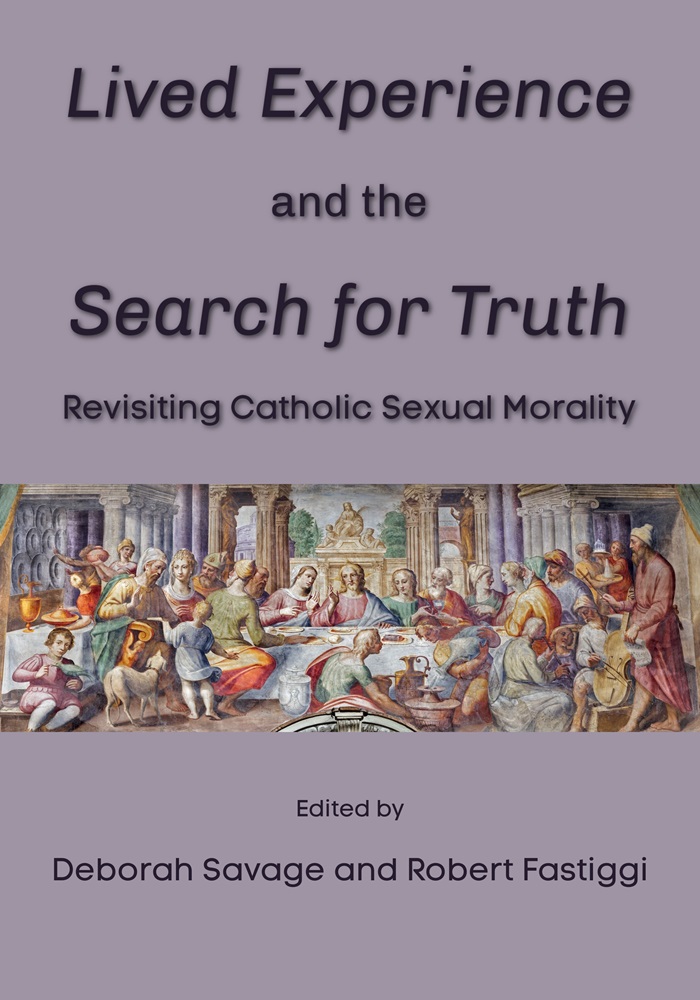

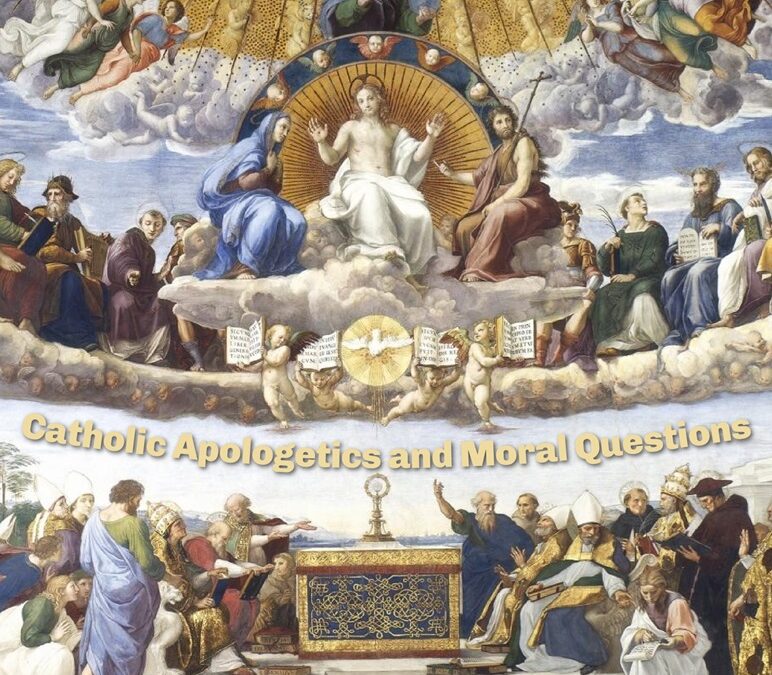
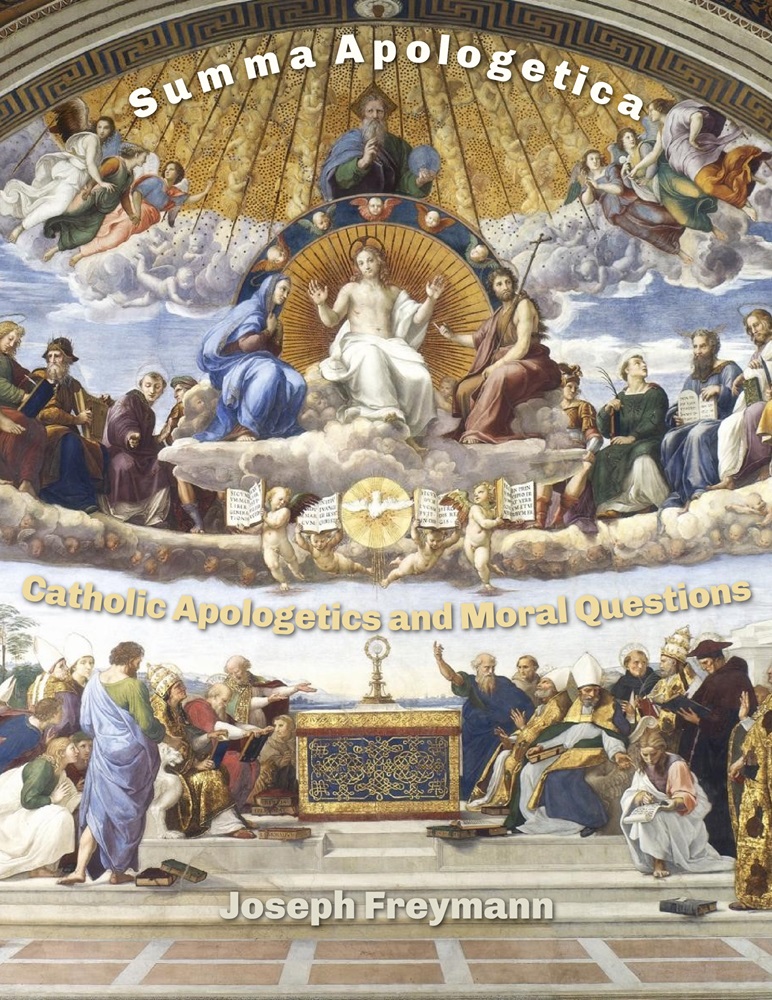
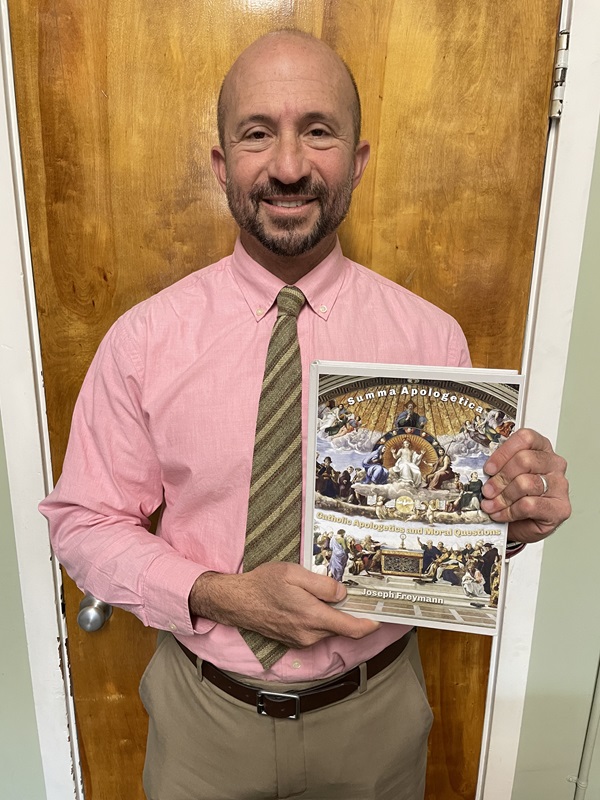
 Joseph Freymann lives in Los Angeles with his wife, five children and three grandchildren. He has a B.S. in Computer Science from the Franciscan University of Steubenville, an M.A. in Philosophy from the Pontifical Athenaeum Regina Apostolorum, and an M.A. in Theology from Holy Apostles College and Seminary. Joseph teaches Math, Physics, and Apologetics at St. Monica Academy in Montrose, CA. He is also a Professor of Philosophy and Apologetics at Catholic Polytechnic University in Glendale, CA. He wrote and developed a mobile app called Appologetics, available for iPhone and Android, as the digital companion of this textbook. His hobbies are basketball, surfing and fishing.
Joseph Freymann lives in Los Angeles with his wife, five children and three grandchildren. He has a B.S. in Computer Science from the Franciscan University of Steubenville, an M.A. in Philosophy from the Pontifical Athenaeum Regina Apostolorum, and an M.A. in Theology from Holy Apostles College and Seminary. Joseph teaches Math, Physics, and Apologetics at St. Monica Academy in Montrose, CA. He is also a Professor of Philosophy and Apologetics at Catholic Polytechnic University in Glendale, CA. He wrote and developed a mobile app called Appologetics, available for iPhone and Android, as the digital companion of this textbook. His hobbies are basketball, surfing and fishing.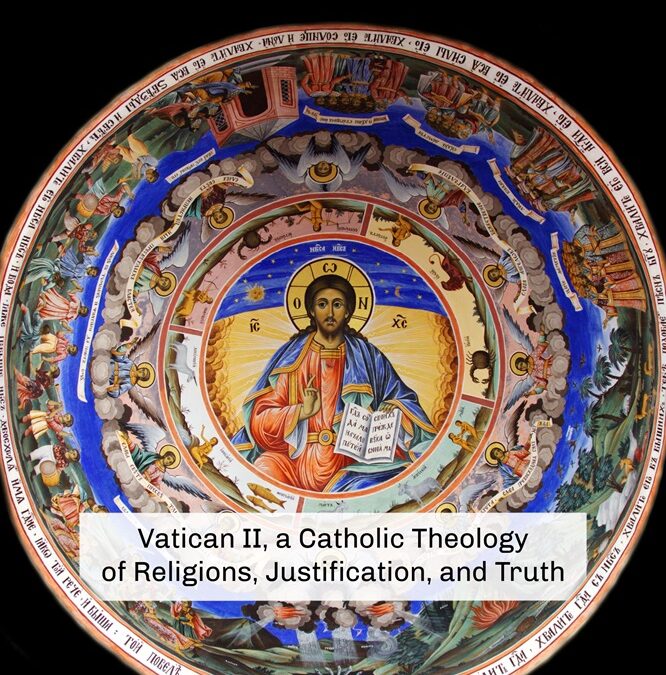
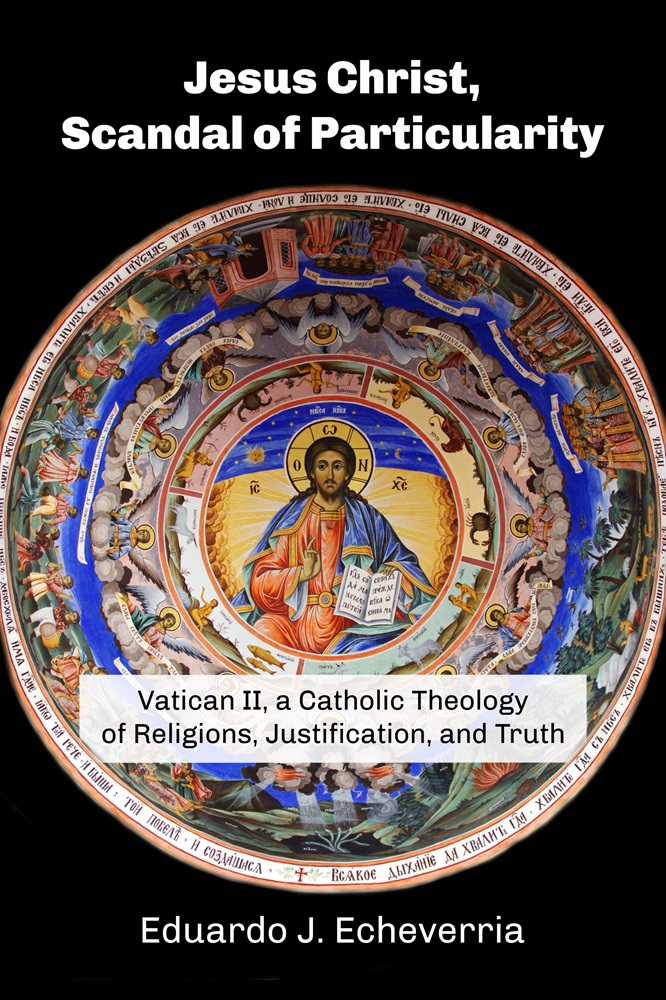

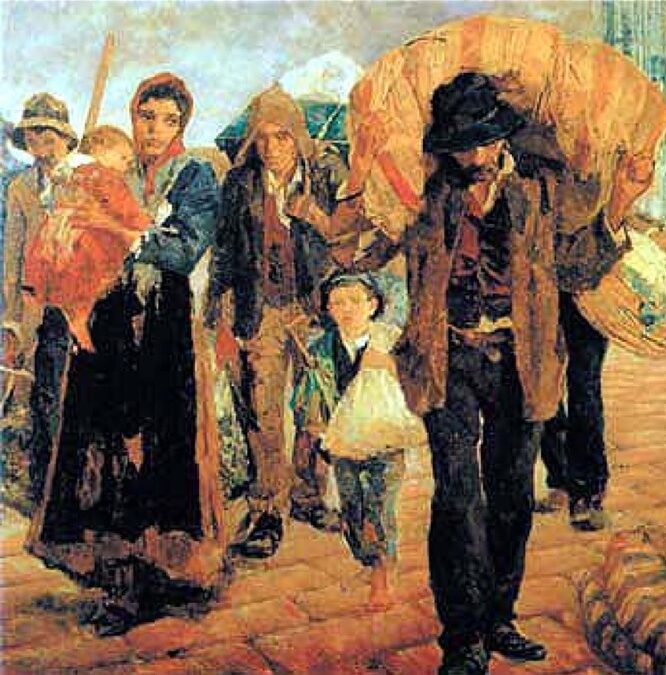
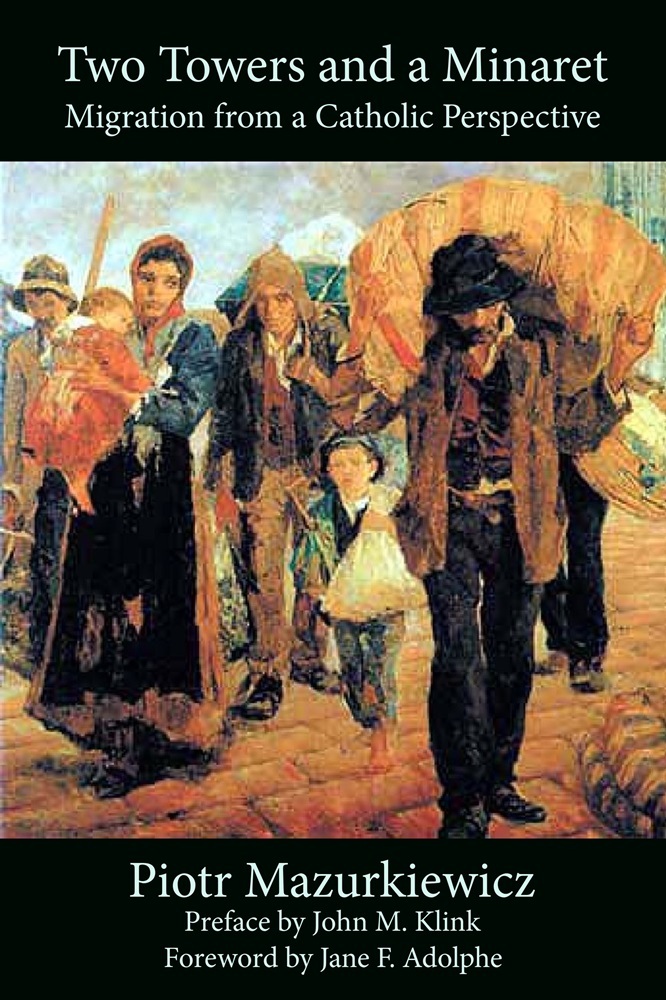
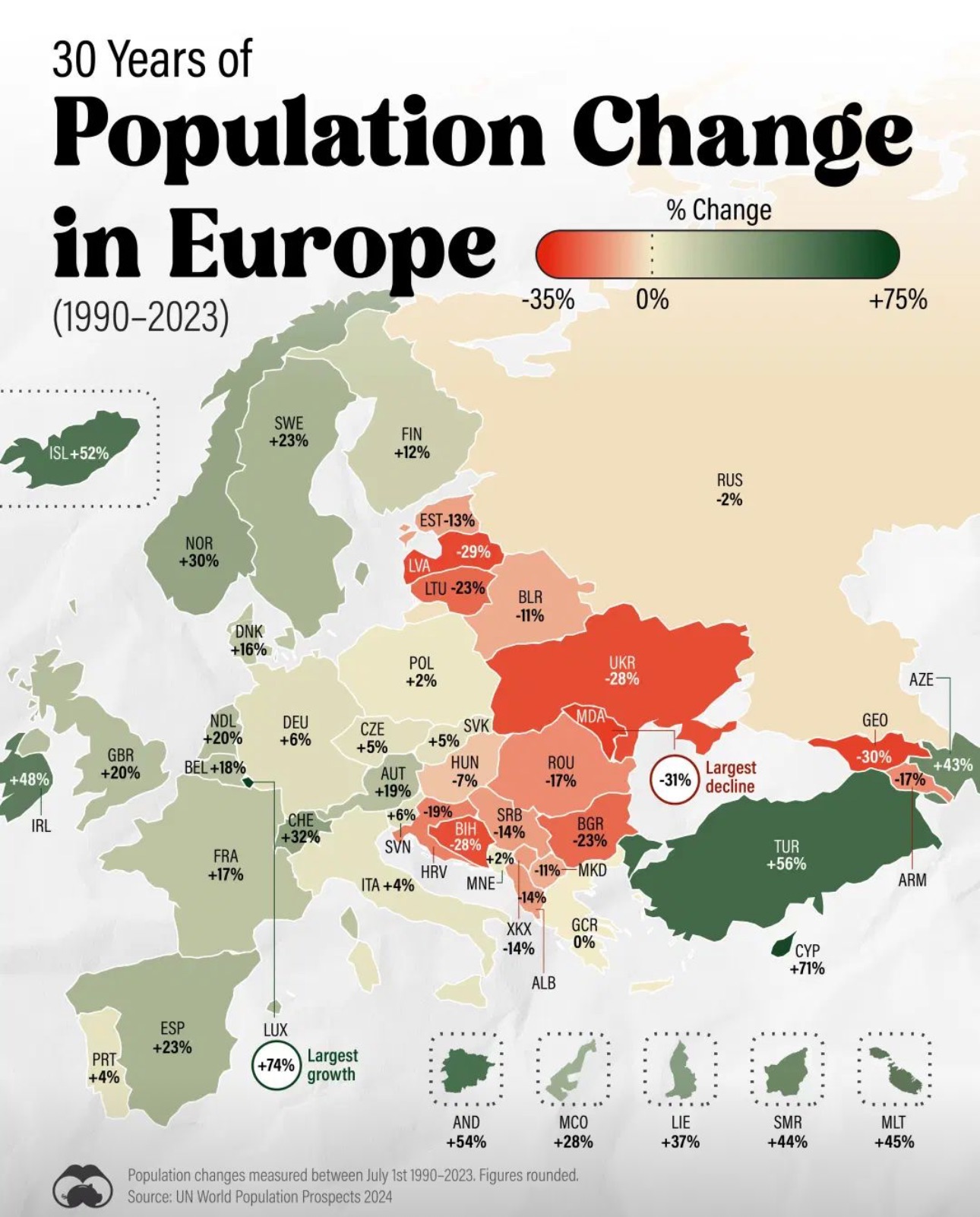
 Piotr Mazurkiewicz: Catholic priest, professor of political science and Catholic social thought at Cardinal Stefan Wyszynski University in Warsaw. Editor-in-chief of the journal “Christianity – World – Politics”. From 2008-2012 Secretary General of the Commission of Bishops of the European Community COMECE.
Piotr Mazurkiewicz: Catholic priest, professor of political science and Catholic social thought at Cardinal Stefan Wyszynski University in Warsaw. Editor-in-chief of the journal “Christianity – World – Politics”. From 2008-2012 Secretary General of the Commission of Bishops of the European Community COMECE.